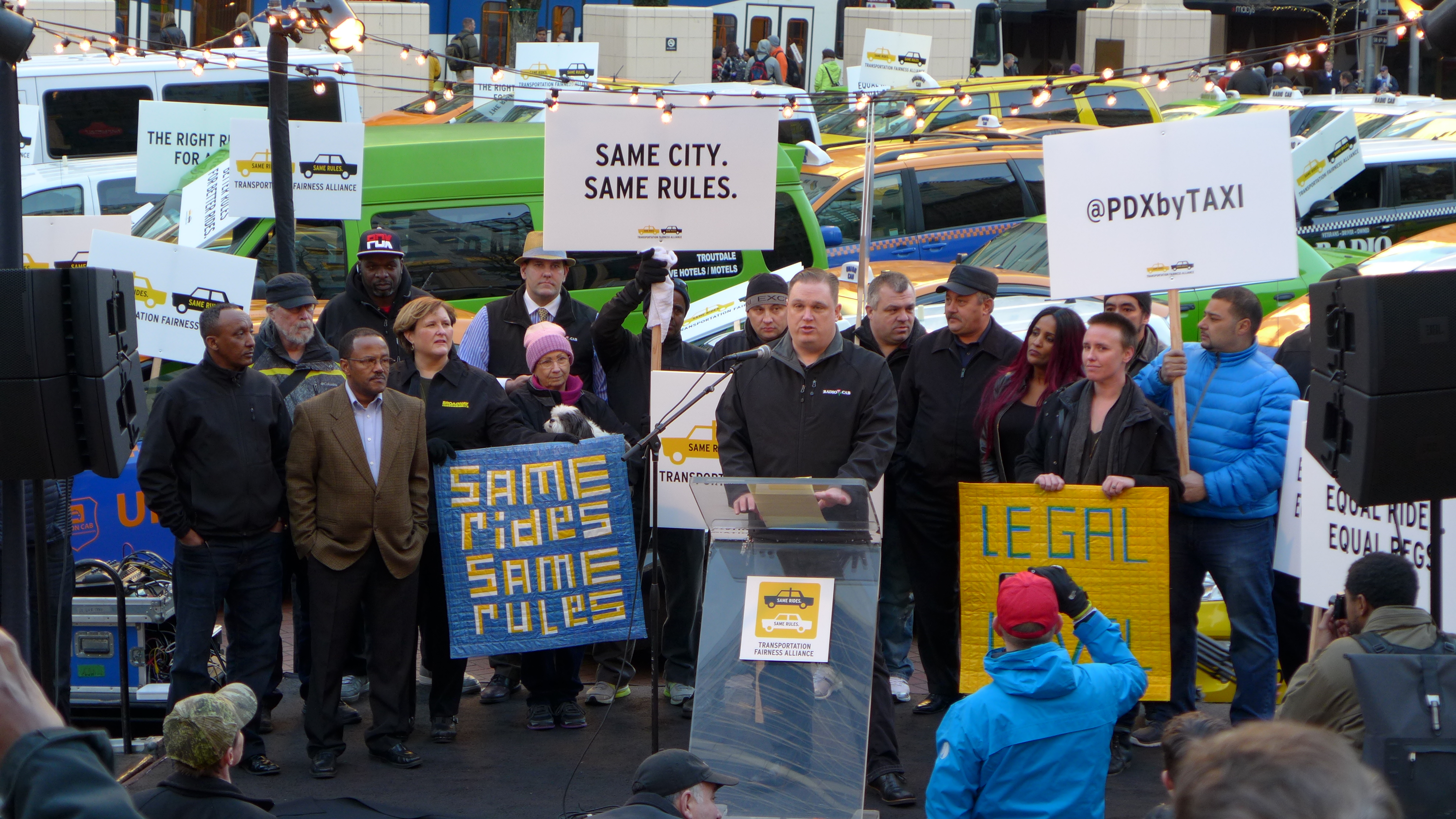Like this article? rabble is reader-supported journalism. Chip in to keep stories like these coming.
Uber (and other more discreet ride-sharing companies — Uber being the loudest and boldest) is facing a challenge to its existence in Mississauga.
Mississauga city council have given the company a week — with a deadline of Wednesday, May 28, 2016 — to shut down or else the city will pull the proverbial the plug on a proposed pilot program which allowed the Uber business model to compete with traditional taxis.
Uber in return did submit a letter to city council outlining its business model and how it can work with the city.
Uber has been the specter that has haunted the taxi industry since its arrival in the GTA, and it has a very shallow history as it was only founded in 2008 in San Francisco.
As of April 12, 2016, the ride sharing service is available in over 60 countries and 404 cities worldwide.
There have numerous conflicts across the globe about Uber legality as a business competing in the taxi industry. Uber has always argued that they are simply a logistical medium in the taxi industry, owning no fleet of vehicles on its own. Owning no fleet makes the issue of taxicab licensing issues not their problem.
The company depends on independent drivers on one end of the chain who are hooked in through the app and make avaliable their private car to pick up passengers, who use their smart phones to order a car. In Toronto, for instance, Uber drivers cannot pick up “flag down” fares from people on the street because Uber drivers are not cabs, and therefore have their own set on operating rules.
Uber claims that it is simply a smartphone app that can logistically connect a rider with an Uber-driven car. At present in Toronto, this means either a licensed cab or a car connected to Uber can show up to pick you up.
In Toronto we have seen a few taxi cab protests — which amount to a purposeful slow down of traffic.
Last week, Mississauga banned all ride-sharing companies from operating in the city unless they are willing to play by the same rules as cabs, including insurance issues. But the mayor left the door open for new municipal legislation, as this is not the last any city has seen of the Uber business model: just create a smartphone app that can logistically connect potential sellers with potential buyers.
As the Toronto Star reported, “Uber Canada spokesperson Susie Heath did not specifically say Wednesday whether the company will pull out of Mississauga by next week.” She also said that “the company already has 100, 000 daily riders and 5000 drivers in Mississauga.”
Councils in Toronto, Edmonton and Ottawa have already have already passed legislation on the ride-sharing model.
On the other hand, Councilor Carolyn Parish does not want to see this ride-sharing model in her or in any city, unless they follow the exact same rules as taxis.
Meanwhile, a ride-sharing agreement is being drafted by city officials for Wednesday’s meeting.
Like this article? rabble is reader-supported journalism. Chip in to keep stories like these coming.



